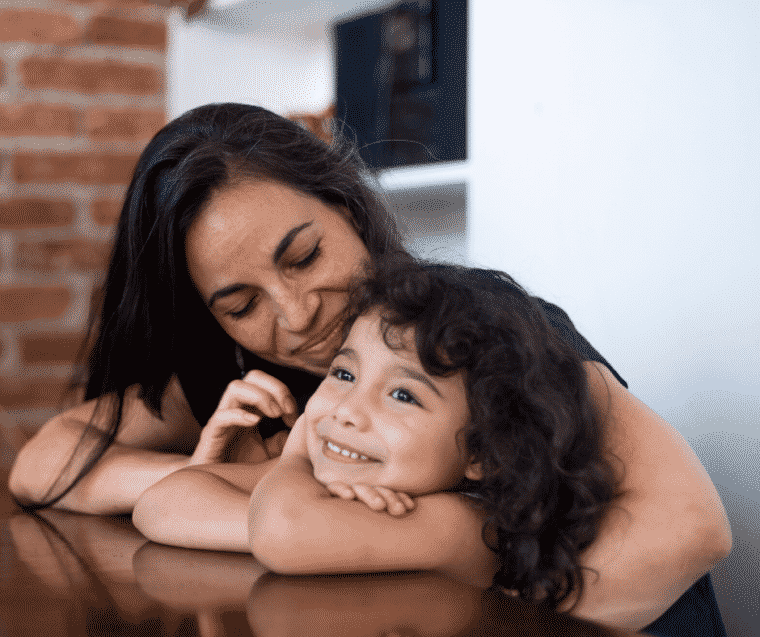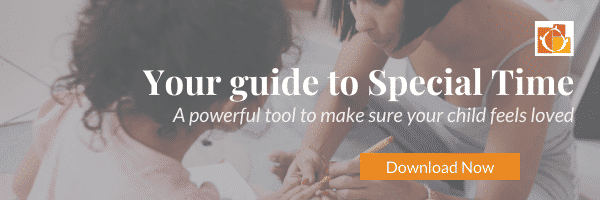Talking to your Child about Covid
My eight-year-old daughter came home from school this week asking if she was going to catch Covid.
Her school Principal had spoken to her class about Coronavirus and the new procedures they were putting in place for children to wash their hands before lunch and break time.
Although I was following the news carefully trying to make sense of the Coronavirus outbreak myself, I had not discussed it with my daughter. It had no direct relevance to her life at that point and I did not want to alarm her unnecessarily.
However, now that it was moving closer to home I knew it was time to talk about it.

This is how I responded to my daughters fears about Covid
I wanted to present the facts and address her fears, without causing her to be scared.
Here's how I talked to my child about Coronavirus. I hope these eight ideas will help your child make sense of it all.
Work on your own fears
It can be quite frightening for us as parents to think about the possible impact Coronavirus might have on our lives.
Not only is there the fear of a potentially serious illness coming into our communities but there is also the impact it might have on our lives if schools are closed and our daily routines are interrupted.
There may be uncertainty over food and medical supplies and worries about loved ones who need caring for.
It's understandable that all of these worries on top of our already stressful and busy lives can become too much for us.
Uncertainty can also trigger older feelings of times we did not feel safe as young children.
In order to respond to your child in a calm way, it's helpful to first deal with your own fears and anxieties.
You can do this by talking to a trusted friend who is a good listener or you might already have a Listening Partner.
Try to find someone you can talk to openly about your fears of what might happen and any old fears that might come up to the surface. If you feel safe enough with your listener, you might release your emotions through crying, sweating, trembling and even laughter.
Once you are able to offload the big feelings you have been holding on to, you can free yourself up to think clearly again. You'll be able to offer the calm presence your child needs during these testing times and you may start to see glimmers of hope and optimism again yourself.
Listen to and acknowledge your child’s concerns
Once you have adequately dealt with your own fears around Covid, you will have more capacity to listen to your child about their worries.
Ask them what they have heard about Covid and what their fears are.
Listen to what they have to say without offering advice, without trying to fix anything and without talking them out of their feelings or minimising their fears.
Acknowledge how they are feeling and give them a chance to air all of their concerns no matter how small. If a child is distressed, all you need to do is shine your warm, loving attention on them and listen.
When children can't access their deeper fears and upsets through talking, they are more likely to find an indirect way to offload their feelings.
You might notice they are more irritable with their younger sibling or with you, or they might pick a small incident and have a big reaction to it. For example, when you ask them to clear the dishes from the table they might refuse when normally they are happy to help out, or they might cry and rage when they are unable to find the toy they really wanted to play with.
These reactions often make no sense to us but if you can remember to simply welcome the big upsets and listen, your child will be able to work on the fears that are sitting just under the surface.
Make sure they have the facts
Once you have given your child plenty of opportunities to talk about their fears, you can help them figure out what to do next.
Tell them you are happy to answer any questions about Covid and that it is good to discuss the things they may have heard other children or adults say about it. Explain to them there is so much misinformation and uncertainty about Covid and it is important to figure out what information is accurate.
You do not have to have all the answers, and you can tell your child you do not know all the facts but you will research it and get back to them with the best answers you can find.
Try to get your facts from reliable sources such as government agencies.
This comic from NPR presents facts about Covid in a very kid-friendly and accessible way.
Offer much-needed reassurance
If your child is worried about what is happening, reassure them that there are many smart and dedicated adults working on how best to keep everyone safe.
Explain that most people recover from Covid and we are lucky to have very good hospitals with trained staff who can give the best care possible to anyone who is unwell, especially those who have chronic health conditions.
Remind them that right now, they are safe and that you are going to do everything possible to keep them safe.
Tell them that in your role as a parent, you do things every day to keep them safe. Mention things like making sure they wear their seatbelt or walking them to school.
Letting them know that it is your job as their parent and that it is not theirs – or any child’s responsibility – is reassuring for them.
Don’t forget about the importance of play and laughter
As adults, we tend to talk through our concerns. Talking is often how we make sense of things.
Play, not talk, is a child's way of making sense of things. Play is how they process what's going on around them and their world, so make time to play with your child. They will thrive on your added warmth and attention.
You can do this through Special Time, where you take a short amount of time and allow your child to direct play while you join in with all your love and enthusiasm.
Get this free guide to Special Time
You can also help your child work on their fears through Playlistening, a parenting tool you can use to help your child release tension and anxiety through laughter.
The easiest way to do this is for you to take a less powerful role by acting incompetent or silly.
Your aim?
Find out what makes your child giggle. Keep doing what makes them giggle – That's how they offload.
You might pretend to be a silly doctor who keeps dropping your equipment or can't find the right part of the body to give an injection. Or your child might want to be the doctor and you could be a bumbling patient who keeps falling over and bumping their head.
When your child giggles (without tickling), they release some of the lighter fears and tensions they might have been holding on to.
Get 6 of our favourite games and start Playlistening today
An added bonus is that in Special Time and Playlistening, you and your child's connection grows stronger.
Take action together
A great way to deal with any kind of adversity is to take action.
When we don't act, we can feel helpless or paralysed by fear. When we take action, especially if we do it together with others in our family or community, we feel empowered and hopeful.
Action brings us together with a common purpose and that builds connection.
Why is connection so important?
When humans feel connected, we feel safe, we can think well and good things can happen.
If you ask, your child will probably have some great ideas about things they could do to take action. They might want to make signs to place next to the washbasins in your house to remind people to wash their hands.
They might need help to talk to their schoolteacher about doing the same in school.
Get creative and keep it fun for everyone. The process itself will bring connection and is just as important as the outcome.
Limit exposure to media reports
Try to limit your child’s exposure to news reports on the TV or radio and in newspapers. Exposure to graphic media depictions can be frightening to children (and adults), making us feel out of control and powerless. This erodes the good sense of connection you have been building in your home.
Be open to talking about media your child might be exposed to outside, but make home your safe space and keep it free from frightening images and news reports.
Accept the uncertainty and focus on the present moment
Your child may have questions you cannot answer and there will be uncertainty. You can't change that and you do not have to.
You do not have to explain everything away.
You can be the anchor in your family.
You can offer your calm, steady presence in the moment and your child will respond to your calming influence.
Remember, you cannot change the past. It is impossible to predict the future. Try to enjoy the present moment with your child and have fun together.
If you are struggling, schedule in some more listening time so you have plenty of opportunities to talk about how hard things feel.
I hope these eight ideas will help when you are talking to your child about Covid. Using them will keep a strong sense of calm, openness and connection with your child, and maintaining this close connection will ensure you and your child have the resilience to navigate the pandemic and all of life’s challenges.
Are your children concerned or worried? How are you talking to your child about Covid?

